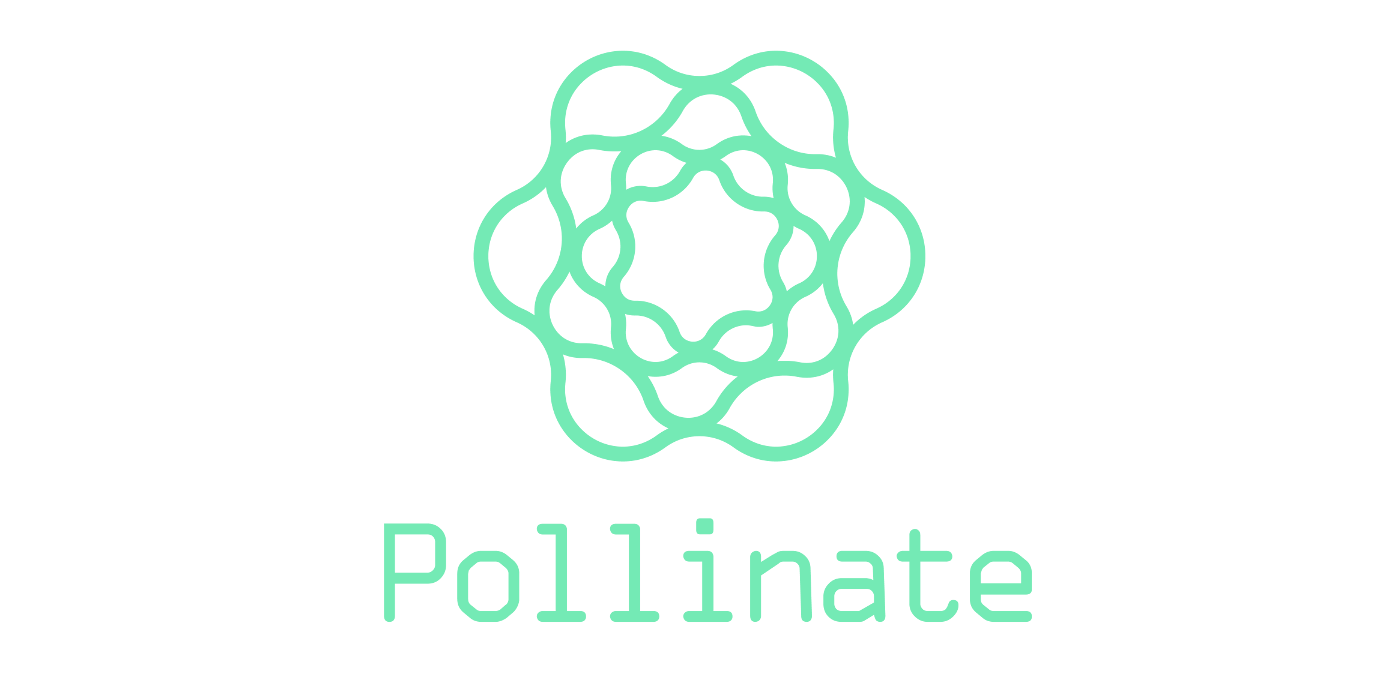pollinate
v2.11.0
Published
Generate a new project directly from Git(Hub) using a simple schema.
Downloads
55
Maintainers
Readme
Generate a new project directly from Git(Hub) using a simple schema.
What?
It is a command that takes a templated tree of files and generates them for new
projects using data defined by a simple schema. The data can define an output
name, files to discard, files to parse with the data, and files to move
or rename. The template can supply the default data, and that data can be
extended for each project. You can throw in any other data you'd like to be
passed to the template context as well.
All templates are parsed with Nunjucks aka Jinja and Twig.
Why?
When starting new projects the quickest way is often to just copy the last project and fiddle with it until it works. This can introduce many unwanted issues, like having one client's name appear in place of the other's. This project's goal is to offer an elegant and efficient way of working with a base set of files that can be understood by looking at a single example.
Install
$ npm install -g pollinateAn example
$ pollinate howardroark/webapp --name newproject --image alpine --description="A thing that does something."The GitHub sourced template
.
├── PROJECT-README
├── README.md
├── Dockerfile
├── project-name
└── template.jsontemplate.json (optional)
{
// Core schema
"name": "webapp",
"parse": [
"PROJECT-README",
"Dockerfile"
],
"discard": [
"README.md",
"template.json"
],
"move": [
{ "PROJECT-README": "README.md" },
{ "project-name": "{{ name }}.txt" }
],
// Custom defaults
"image": "debian",
"description": "Lorem ipsum dolor sit amet, consectetur adipiscing elit."
}You can omit any or all of discard, parse and move.
PROJECT-README
# {{ name }}
{{ description }}Dockerfile
FROM {{ image }}The project data
{
"name": "newproject",
"image": "alpine",
"description": "A thing that does something."
}The data after extending and parsing
{
"name": "newproject",
"parse": [
"Dockerfile",
"PROJECT-README"
],
"discard": [
"README.md",
"template.json"
],
"move": [
{ "PROJECT-README": "README.md" },
{ "project-name": "newproject.txt" }
],
"image": "alpine",
"description": "A thing that does something."
}The result
.
└── newproject
├── README.md
├── newproject.txt
└── DockerfileREADME.md
# newproject
A thing that does something.Dockerfile
FROM alpineMore options
You can specify template files as a local directory (.git will be removed)
$ pollinate ./template --name newproject --image ubuntuYou can use any Git url (.git will be removed)
$ pollinate https://github.com/howardroark/webapp.git --name newproject --image ubuntuYou can pass project data as a file
$ pollinate howardroark/webapp data.jsonYou can pass project data as a JSON string
$ pollinate howardroark/webapp '{"name":"newproject","image":"alpine","description":"A thing that does a thing."}'You can pass project data as a JSON endpoint
$ pollinate howardroark/webapp https://example.com/json/dataYou can generate from the default data in the template
$ pollinate howardroark/webappYou can override data as CLI options
$ pollinate howardroark/webapp data.json --name=alternate --image=ubuntuYou can specify a command to run on completion
{
"complete": "git init {{ name }}"
}You can supply user specific data each time with a ~/.pollen defaults file
{
"api_key":"secret"
}You can preserve the commit history from the skeleton project with the --keep-history CLI option or:
{
keepHistory: true
}Filters
You can supply custom Nunjucks filter functions (files must be included within template)
{
"filters": {
"markdown": "filters/markdown.js"
}
}filters/markdown.js
var markdownParser = function() { ... }
module.exports = function(markdownText) {
var html = markdownParser(markdownText)
return '<div class="markdown">'+html+'</div>'
}Parse
All parse paths are first passed to globby
{
"parse": ["*"]
}{
"parse": [
"*",
"!templates"
]
}Merge
You can specify .json files to merge
package.json
{
"name": "@howardroark/webapp",
"version": "1.0.0",
"description": "project for testing pollinate with merge",
"main": "index.js",
"repository": {
"type": "git",
"url": "git+https://github.com/howardroark/webapp.git"
},
"author": "Andy Edwards",
"license": "ISC",
"bugs": {
"url": "https://github.com/howardroark/webapp/issues"
},
"homepage": "https://github.com/howardroark/webapp#readme",
"dependencies": {
"lodash": "^4.17.4"
}
}PROJECT-package.json
{
"name": "@{{ organization }}/{{ name }}",
"version": "1.0.0",
"description": "{{ description }}",
"repository": {
"type": "git",
"url": "git+https://github.com/{{ organization }}/{{ name }}.git"
},
"author": "{{ author }}",
"bugs": {
"url": "https://github.com/{{ organization }}/{{ name }}/issues"
},
"homepage": "https://github.com/{{ organization }}/{{ name }}#readme",
}template.json
{
"name": "webapp",
"description": "project for testing pollinate with merge",
"organization": "howardroark",
"author": "Andy Edwards",
"parse": [
"PROJECT-package.json"
],
"merge": [
["package.json", "PROJECT-package.json"]
],
"discard": [
"PROJECT-package.json"
]
}command
pollinate howardroark/webapp#merge-test --name myapp --description 'my new app' --organization myorg --author MeThis will overwrite package.json with the contents of package.json and PROJECT-package.json merged with
lodash.merge. This is useful when you want to keep template variables out of package.json, since they would cause
certain npm commands to fail.
Resulting package.json
{
"name": "@myorg/myapp",
"version": "1.0.0",
"description": "my new app",
"main": "index.js",
"repository": {
"type": "git",
"url": "git+https://github.com/myorg/myapp.git"
},
"author": "Me",
"license": "ISC",
"bugs": {
"url": "https://github.com/myorg/myapp/issues"
},
"homepage": "https://github.com/myorg/myapp#readme",
"dependencies": {
"lodash": "^4.17.4"
}
}Thanks
- @binhood for the fantastic work on the logo!
- @jedwards1211 for the handy object
mergeoption :) - @ben657 for refactoring a bunch of stuff :o


